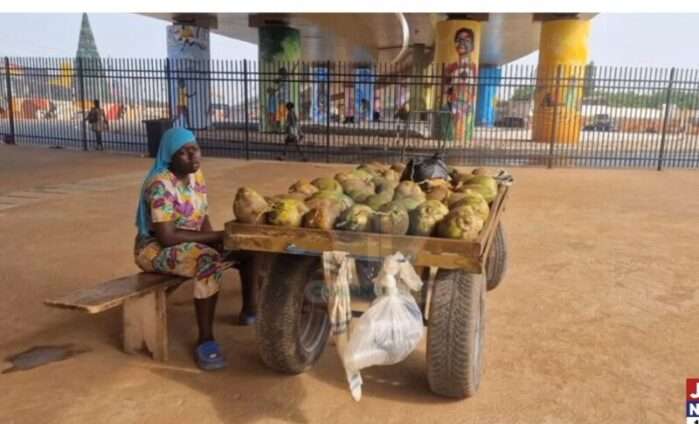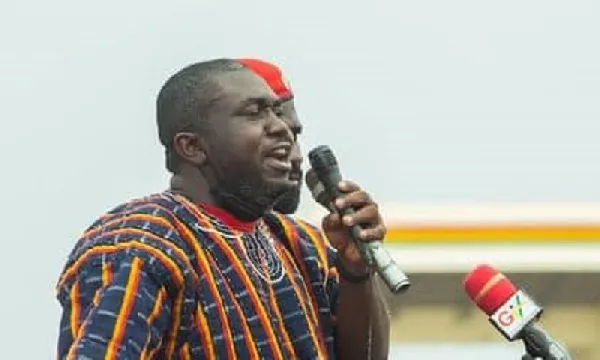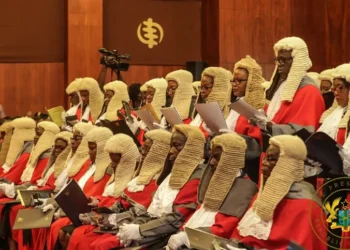Commenting on the government’s response to hawkers at the newly commissioned Flowerpot Interchange, Oliver Barker-Vormawor, a prominent lawyer and social activist, shared his observations.
He noted that hawkers are a common sight at all interchanges and traffic stops in Ghana.
Instead of simply evicting them, he argued, the government should adopt a policy-driven approach.
This approach should ask why hawkers congregate there and explore solutions to address the root causes.
“The way to have a non-emotive dialogue is to organize a conversation around this issue. Hopefully, your emotions are down today and we can engage from a place of empathy and mutual understanding.
“The necessary assumption that to demand that ‘developmental’ projects are humanized by considering the effect on people whose lives and demand for economic incorporation, is akin to insisting on lawlessness is facetious”.
Oliver Barker-Vormawor
Barker-Vormawor stated that there were hawkers at that junction before the government built an interchange, expressing disappointment that the hawkers were sacked, and were not accommodated.
He highlighted the naivety in the government’s expectation that hawkers, who rely on traffic slowdowns for their livelihood, would avoid the new interchange.
Instead, he argued, it is unrealistic to think they would continue hawking at older interchanges, which attract less attention from Ghanaians and are less profitable for their businesses.“Shein Shein kwa Republic”.

Barker-Vormawor further argued that targeting and demonizing a single coconut seller does not reflect a policy-driven approach to addressing the issue of hawking.
He criticized the actions of Titus Glover, the Accra Regional Minister, for kicking and destroying a hawker’s table, stating that such acts do not constitute meaningful policy implementation.
The astute lawyer cautioned against superficial or tokenistic displays of action, warning that these do little to address the root causes of the problem.
Instead, he emphasized the need for thoughtful and strategic solutions that tackle the broader systemic issues driving hawking in urban areas.
Vormawor Challenges Elite Perspectives on Poverty
Furthermore, Oliver Barker-Vormawor voiced concerns about the tendency of elite thinking to dismiss and devalue the economic activities of poor people.
He pointed out that these are often the very individuals for whom policies are rarely designed to provide meaningful support.
He noted with concern that some have compared the coconut seller’s trade to armed robbery, a comparison he found both troubling and unfounded.

Barker-Vormawor argued that advocating for the hawker’s perspective should not be misconstrued as justifying criminal activities like armed robbery.
“Again, my politics places responsibility on the State and empathizes with poor people making an honest and decent living.
“As someone said on Twitter ‘It’d be a cool project to design these spaces to accommodate trade and human traffic while prioritizing hygiene and order. Feels like we’re constantly trying to mimic developed cities without the economy and culture to match’”.
Oliver Barker-Vormawor
With a touch of sarcasm, Barker-Vormawor remarked that, like many others, he appreciates a well-constructed interchange.
However, he noted, “Not as much as I love my Ghana Card, of course.” He went on to express his preference for an Accra that is aesthetically pleasing—one devoid of the “unsightly” presence of poor individuals striving to earn a living.
He critiqued the societal attitude that seems to favor a city where the impoverished are hidden from view and where young boys do not approach vehicles in traffic to clean windshields for money.
Vormawor expressed his preference for Accra’s interchanges to be as pristine and orderly as those in Germany. “So I ask Germans, show us where you hide your poor, so we can do that too!”
He wittily remarked that life would be perfect without the presence of hawkers and street vendors disrupting the pristine appearance of interchanges.
His comment highlighted a sarcastic critique of societal attitudes that prioritize aesthetics over addressing the economic realities and struggles of the underprivileged.
READ ALSO: CalBank Shines Amidst Market Volatility with 3% Gain























